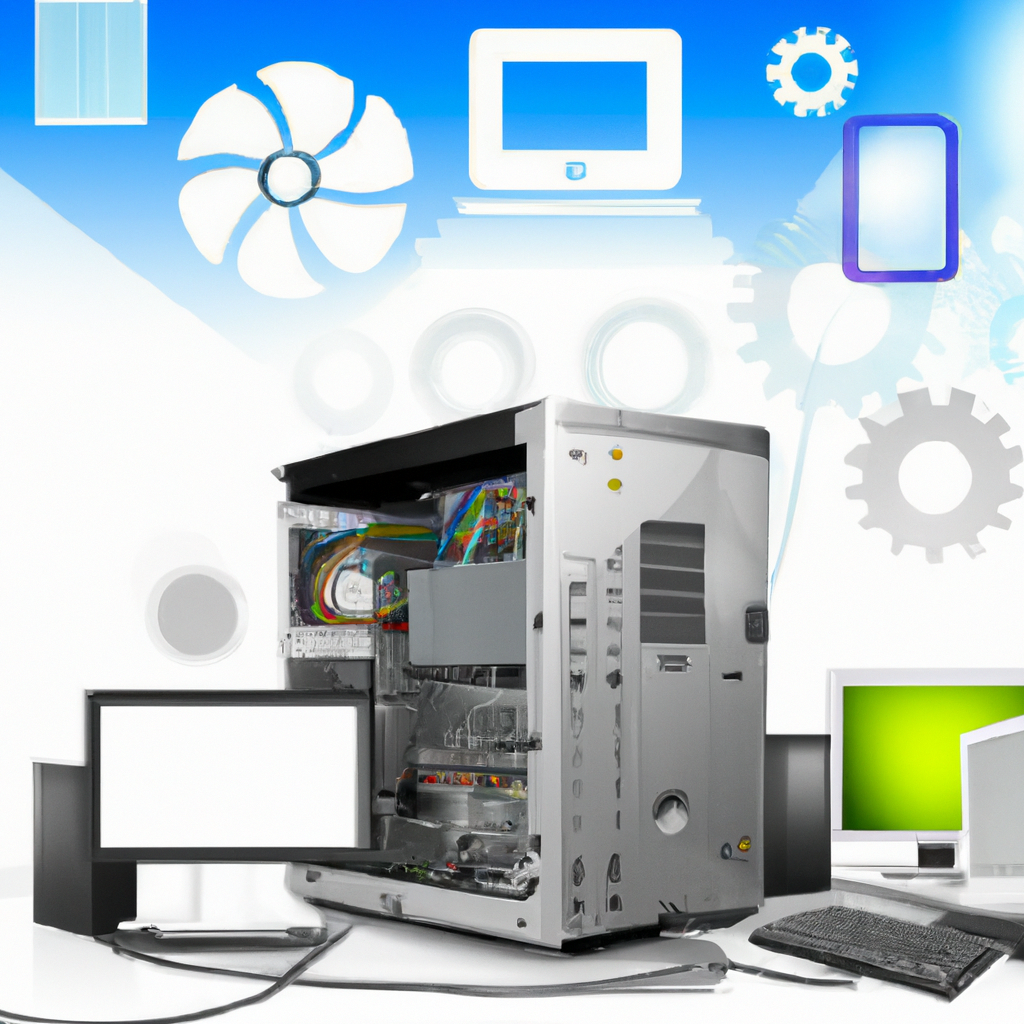So you’re in the market for a new computer and you’re wondering if it’s cheaper to build your own rather than buying a pre-built one? Well, you’ve come to the right place! In this article, we’ll explore whether building your own computer can save you some serious cash. We’ll uncover the hidden costs, compare prices, and weigh the pros and cons so you can make an informed decision. Whether you’re a tech enthusiast or simply want to stretch your budget, keep reading to find out if building your own computer is the way to go.

This image is property of pixabay.com.
Factors to Consider
When deciding whether it’s cheaper to build your own computer, there are several factors you should take into consideration. These include the cost of components, the cost of labor, the customization options available, and the quality of the components used in the build. By evaluating these factors, you can determine the overall cost and value of building your own computer compared to purchasing a pre-built system.
Cost of Components
One of the most significant factors in determining the cost of building your own computer is the cost of the components you choose to include in your build. When comparing prices, it’s essential to research different retailers and websites to find the best deals. This will allow you to save money on individual components such as the processor, motherboard, memory, and storage.
In addition to comparing prices, consider the availability of discounts. Some retailers may offer promotions or bundle deals that can significantly reduce the overall cost of your components. Additionally, keep in mind the upgradability of the components you choose. Investing in components that are easily upgradable can save you money in the long run, as you’ll be able to enhance your system without needing to purchase a completely new one.
Cost of Labor
While building your own computer can be a rewarding experience, it’s essential to factor in the cost of labor. Time is money, and assembling a computer from scratch can be a time-consuming process. Consider the amount of time you’re willing to commit to researching, selecting, and assembling your components.
There’s also the cost of troubleshooting and repairs to consider. If you encounter issues with your build, you’ll need to spend time and potentially money to diagnose and fix the problem. Similarly, the cost of software installation should be taken into account. While many operating systems are available for free, some proprietary software may require a purchase, adding to the overall cost.
Customization Options
One of the significant advantages of building your own computer is the ability to customize it to your exact specifications. When considering customization options, think about your choice of components. Building your own computer allows you to select each individual component, ensuring that they meet your specific needs and preferences.
Furthermore, you have the ability to customize the hardware itself. This includes the selection of a case, cooling system, and other aesthetic features. Another crucial customization option to consider is the choice of operating system. Building your own computer allows you the freedom to select the operating system that best suits your needs, whether it’s Windows, macOS, or a Linux distribution.

This image is property of pixabay.com.
Quality of Components
While cost is a significant factor, it’s also crucial to consider the quality of the components used in your build. When building your own computer, you have the option to choose components from manufacturers known for their reliability. Research the reputation of different component manufacturers and consider their warranty and support offerings.
Reliable components can provide peace of mind, knowing that your computer will function optimally without frequent issues. Additionally, reputable manufacturers often offer more extended warranty periods, which can save you money on potential repairs. By building your own computer, you have the control to choose components that meet your quality standards.
Factors Affecting Cost Savings
When determining whether building your own computer is cheaper, there are several factors that can affect your cost savings. These include your technical expertise, the time commitment required, and the risk of errors and compatibility issues.

This image is property of pixabay.com.
Technical Expertise
Building a computer requires a certain level of technical knowledge. Consider the level of knowledge required before embarking on a build. If you’re a beginner, you may need to spend time learning the necessary skills and techniques. Evaluate the resources available to you for learning, such as online tutorials, forums, or friends who have experience with computer building.
Support is another aspect to consider. Are there resources available to assist DIY builders if they encounter challenges during the build? Having access to a supportive community or knowledgeable experts can make the process smoother and minimize the risk of costly mistakes.
Time Commitment
Building your own computer can be a time-consuming process. Researching the components, comparing prices, and selecting the right components takes time. Additionally, assembly can be a meticulous task that requires attention to detail.
Inevitably, there may be troubleshooting involved if you encounter compatibility issues or errors during the build. Troubleshooting can take a significant amount of time, requiring patience and problem-solving skills. Before embarking on a build, assess your availability and willingness to allocate the necessary time to complete the process.

Risk of Errors and Compatibility Issues
There is always a certain level of risk involved when building your own computer. One potential risk is compatibility issues between components. It’s crucial to ensure that all the selected components will work together seamlessly. Research compatibility requirements and consult online resources or experts if needed.
Another risk is the potential for damages during the build process. Mishandling components or incorrect installation can lead to costly mistakes. Additionally, there’s a risk of performance issues if components are not installed correctly or if the build is not optimized for your specific needs.
Considering these risks, it’s essential to evaluate your confidence level and ability to mitigate them through careful research, attention to detail, and proper assembly techniques.
Overall Cost Comparison
To determine whether building your own computer is cheaper, it’s necessary to compare the overall costs involved. This includes evaluating the individual component costs, costs of software and the operating system, and making a direct comparison with pre-built systems.
Individual Component Costs
Research the prices of each component you intend to include in your build. Compare prices from different retailers to find the most affordable options. Consider any bundle deals or discount opportunities that may be available.
Additionally, factor in the cost of any peripherals or extras you may need, such as a monitor, keyboard, or mouse. These costs can vary significantly and should be included in the overall budget for your build.
Costs of Software and Operating System
Consider the costs associated with the software you’ll need for your computer. While many open-source and free options are available, some proprietary software may require a purchase. Evaluate the software you’ll need and budget accordingly to ensure accurate cost estimation.
Furthermore, take into account the cost of the operating system if you choose to purchase one. While there are free operating systems available, proprietary operating systems such as Windows or macOS may require a purchase.
Comparison with Pre-built Systems
Finally, compare the overall cost of building your own computer to purchasing a pre-built system. Research pre-built systems that meet your requirements and evaluate their prices. Take note of the components included in the pre-built systems and compare their quality and specifications with the components you’ve selected for your build.
Consider the potential savings or additional costs associated with building your own computer. It’s important to weigh these factors to determine the most cost-effective option for your specific needs and budget.
In conclusion, when deciding whether it’s cheaper to build your own computer, consider factors such as the cost of components, the cost of labor, customization options, and the quality of the components. Additionally, evaluate the technical expertise and time commitment required, as well as the potential risks involved. By thoroughly assessing these factors and comparing the overall costs, you can make an informed decision on whether building your own computer is the most cost-effective option for you.

